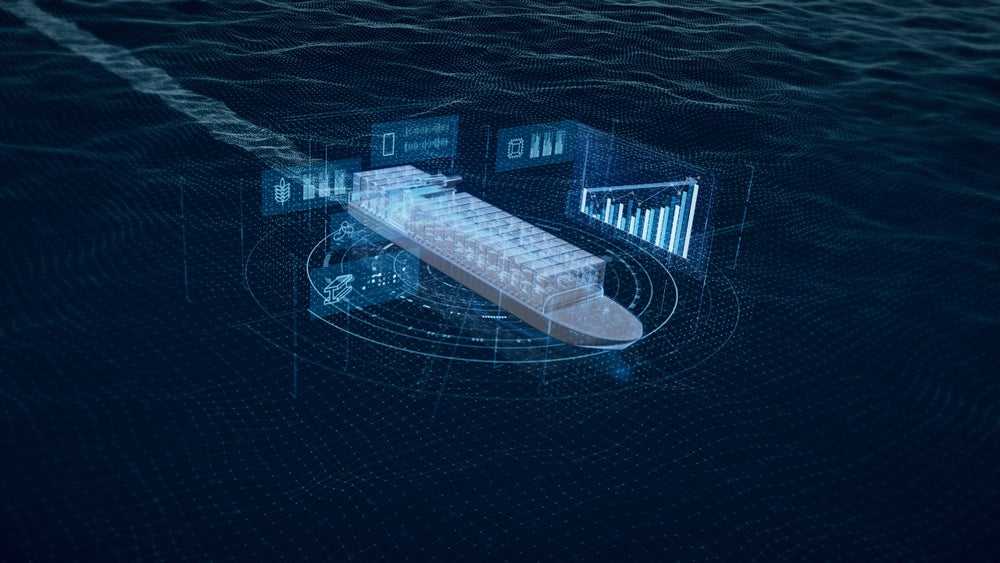A recent decarbonisation survey conducted by Houlder revealed a scarcity of high-quality, relevant operating maritime data that currently hinders investment decisions and complicates the assessment and adoption of innovative solutions.
Advancing towards decarbonisation requires a proactive, collaborative effort where shipowners utilise real-world performance data, evaluate various technologies, and detect fleet-wide patterns. Shifting from quick fixes to comprehensive adoption of efficiency technologies is essential for enacting substantial, industry-wide changes.

Reliable performance data is crucial for building trust and fostering collaboration between technology providers and shipowners.
This creates a mutually beneficial scenario: technology providers gain credibility through successful implementations, while shipowners ensure that technologies meet their operational and sustainability goals. Shipowners must be confident that these technologies deliver on their promises.
Powerful decarbonisation tools
Efficiency technologies are continuously advancing, offering significant potential for reducing fuel consumption and emissions. Technologies like low or zero-carbon propulsion systems, including fuel cells and batteries, along with propulsion aids like Flettner rotors and wing sails, pave the way towards zero-emission shipping. Additionally, innovations in energy efficiency, such as waste heat recovery systems, can markedly enhance vessel performance.
The economic landscape is swiftly evolving, with regulatory frameworks and incentives increasingly supporting measures that aid decarbonisation. The European Union’s Emissions Trading System (EU ETS) demonstrates that there is a real cost for GHG emissions.
How well do you really know your competitors?
Access the most comprehensive Company Profiles on the market, powered by GlobalData. Save hours of research. Gain competitive edge.

Thank you!
Your download email will arrive shortly
Not ready to buy yet? Download a free sample
We are confident about the unique quality of our Company Profiles. However, we want you to make the most beneficial decision for your business, so we offer a free sample that you can download by submitting the below form
By GlobalDataAs the level of penalty under this scheme, increases and others follow it, shipowners can now create a much more sophisticated business case to support investment in clean technologies. Gone are the days when the payback is measured in fuel saved alone. Moreover, FuelEU Maritime encourages the implementation of abatement methods and the use of low-carbon fuels by setting progressively stringent GHG emission targets based on the 2020 MRV fleet baseline.
Similarly, the International Maritime Organization’s Carbon Intensity Indicator (IMO CII) is poised to significantly impact shipowners commercially, highlighting the importance of efficiency technologies for achieving superior ratings and favourable charter party agreements. These technical and economic factors must be integral to any sustainability analysis and strategy.
Navigating the future
While efficiency technologies, such as wind assist and air lubrication systems, offer remarkable potential to cut greenhouse gas emissions and operational costs within the maritime industry, the abundance of these rapidly evolving options requires precise evaluation to ensure robust investment decisions and maximise their impact.
The effective evaluation of efficiency technologies starts with considering a ship’s specific operating performance and duty profile, rather than focusing solely on the technology. Emissions performance varies widely based on factors such as ship type, route, cargo, vessel speed, sea state, loading condition, and fuel type.
With adequate maritime data and advanced analytical tools, broader insights can be drawn across different vessels to identify fleet-wide trends. Ensuring that performance data encompasses the vessel’s full operational range and reflects real voyages is crucial.
Sometimes, clean technology providers may be reluctant to share performance data or that data may not be relevant to the specific vessel or its duty cycle. There is no “silver bullet” technology that will keep a vessel compliant in the ever-tightening regulatory regime. It is important therefore that the shipowner can see the real impact of applying more than one technology.
Whilst today’s investment decision may be for one measure, it’s important to have a plan for the future that ensures that the most effective measure(s) are done first, and that the future potential of the vessel is also understood. In such instances, an independent expert can serve as a bridge, aligning the providers’ projections with the assurances needed by shipowners for investment decisions.
While the debate over alternative fuels continues, one aspect remains clear: efficiency technologies are crucial for driving sustainability in the maritime sector. However, their integration must be grounded in rigorous analysis and a commitment to transparency.
Looking ahead
The maritime industry’s journey towards decarbonisation and increased efficiency hinges on the strategic use of accurate and comprehensive data.
As the landscape of efficiency technologies continues to evolve, shipowners and technology providers must collaborate closely, building trust through the transparent sharing and analysis of performance data. This collaborative approach is vital for making informed investment decisions and ensuring that new technologies fulfil their operational and environmental promises.
Ultimately, achieving substantial decarbonisation and efficiency improvements is not a matter of quick fixes but a commitment to comprehensive, data-driven strategies.
By prioritising transparency and collaboration, the maritime industry can harness the full potential of emerging technologies, steering confidently towards a future of zero-emission shipping and enhanced operational performance.




